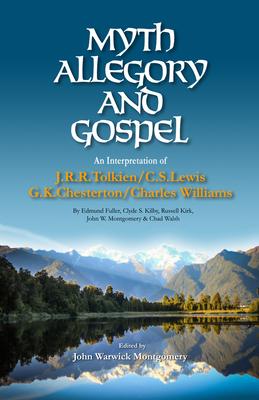If you are a "fan" of the fantasy books by Tolkien, C.S.Lewis, Charles Williams or Chesterton, then this is a book worth reading. It is a collection of essays by various authorities in literature, myth and theology. A couple of the contributors were acquainted with either Tolkien or Lewis. The central thesis running through this collection of essays is that mythic symbols found in folk-tales and religious rituals, all express a common, fundamental human yearning for healing and a return to a "lost paradise". The essayists draw on insights from religious phenomenology, Jungian analysis, Christian theology and literary interpretation to tease out the potent mythic symbols found in the writings of Tolkien, Lewis, Chesterton and Williams. Lewis, Williams and Tolkien were associated with one another as drinking partners in an informal literary club known as The Inklings. The essayists "test" their thesis about the power of myth to reveal our search for meaning through the novels of the Inklings. The essayists take us a step further to consider the Christian world-view that informed and shaped the writings of Tolkien, Lewis, Williams and Chesterton. Although a couple of the essays are slightly "dated", anyone interested in fantasy literature would find the thesis very absorbing. It should be useful not merely to students of English literature but also to the general reader who might like to know more about the backdrop to The Lord of the Rings, Narnia, etc. Certainly a book to add to your list for reading if you enjoyed the novels!

Myth, Allegory, and Gospel: An Interpretation of J.R.R. Tolkien, C.S. Lewis, G.K. Chesterton, Charles Williams
If you are a "fan" of the fantasy books by Tolkien, C.S.Lewis, Charles Williams or Chesterton, then this is a book worth reading. It is a collection of essays by various authorities in literature, myth and theology. A couple of the contributors were acquainted with either Tolkien or Lewis. The central thesis running through this collection of essays is that mythic symbols found in folk-tales and religious rituals, all express a common, fundamental human yearning for healing and a return to a "lost paradise". The essayists draw on insights from religious phenomenology, Jungian analysis, Christian theology and literary interpretation to tease out the potent mythic symbols found in the writings of Tolkien, Lewis, Chesterton and Williams. Lewis, Williams and Tolkien were associated with one another as drinking partners in an informal literary club known as The Inklings. The essayists "test" their thesis about the power of myth to reveal our search for meaning through the novels of the Inklings. The essayists take us a step further to consider the Christian world-view that informed and shaped the writings of Tolkien, Lewis, Williams and Chesterton. Although a couple of the essays are slightly "dated", anyone interested in fantasy literature would find the thesis very absorbing. It should be useful not merely to students of English literature but also to the general reader who might like to know more about the backdrop to The Lord of the Rings, Narnia, etc. Certainly a book to add to your list for reading if you enjoyed the novels!